Chemotherapy, radiation, and surgery are not the only line of defense for breast cancer patients. Mounting scientific evidence is pointing toward yoga as a therapeutic tool to help women relax and combat the common side effects of treatments, like fatigue, stiffness, insomnia, pain, and depression, report Harvard and Duke University researchers. Yoga also reduces the stress and anxiety—which in turn lowers blood pressure and eases respiration—that usually accompanies such a serious and scary diagnosis. Because stress can wreak havoc on the immune system, it’s more crucial than ever to keep calm during this time so the body can reserve its strength for recovery.
Here, three brave breast cancer survivors share their inspiring stories how maintaining, returning to, or starting a regular yoga practice helped them each get through the physical and emotional trials of the long recovery process.
“Yoga helped me trust my body again after being terrified of it after my diagnosis. And most of all, yoga helped me focus on the most important thing: the baby growing in my belly.” — Lauren, 34, Chicago, IL
I have been practicing yoga—mostly hatha, yoga nidra (deep relaxation), and restorative yoga—since 2005. Four years ago, I completed my teacher-training course at the Sivananda Yoga Ashram in the Bahamas. I met my husband through yoga; we both volunteer at the same local studio. Yoga has helped me through difficult times in my life, so naturally I turned to it after I was diagnosed with breast cancer on March 13, 2015. I was eight weeks pregnant at the time and had just had my first ultrasound that morning.
The support of my yoga community was huge. They reached out often and offered a donation class to help with my medical bills. Keeping up with my practice was key, too, especially leading up to labor and delivery. Through yoga I was able to calm my thoughts and focus on the present. I was able feel gratitude for all that I have. I was able to breathe deeply again. I was able to stretch and move my body in ways that felt good. Yoga helped me trust my body again after being terrified of it after my diagnosis. And most of all, yoga helped me focus on the most important thing: the baby growing in my belly. I especially loved prenatal yoga as I was able to devote my entire practice to little Nico. I loved feeling him kick as I moved through different asanas and as I rested in Savasana.
I also believed that yoga helped me to have a fast and easy delivery. I practiced postures every day that helped baby get into the right position for delivery. The breathing and relaxation I learned in yoga helped with pain management.
Related: 16 Incredible Stories of Healing Through Yoga
“Yoga helped replace the need for physical therapy as it not only improved my strength and flexibility, but also played a significant role in helping manage my stress during this crazy time.” —Katie, 35, Chicago, IL
I was diagnosed with stage 3 breast cancer in my right breast last August. Being on the younger side of patients with breast cancer, I tested for the BRCA 1 genetic mutation—the hereditary gene that could up my odds of getting cancer in my left breast, too. Because I tested positive, I had a bilateral mastectomy in late fall and underwent three months of chemo and radiation therapy over the winter and spring. I also had reconstruction surgery (new boobs, woohoo!) a few months back.
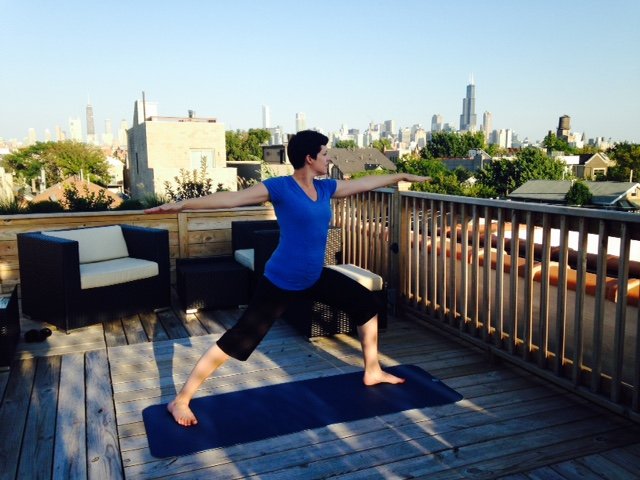 I started private gentle yoga sessions with Lindsey (a close friend who is seen above, right, with me in the photo) a few months after my mastectomy and have continued to practice for the last nine months. Yoga helped replace the need for physical therapy as it not only improved my strength and flexibility but also played a significant role in helping manage my stress during this crazy time. The at-home yoga sessions were so comforting. At first, I felt very insecure about my hair loss and weight gain, but Jenny is very uplifting and made yoga my new favorite way to work out.
I started private gentle yoga sessions with Lindsey (a close friend who is seen above, right, with me in the photo) a few months after my mastectomy and have continued to practice for the last nine months. Yoga helped replace the need for physical therapy as it not only improved my strength and flexibility but also played a significant role in helping manage my stress during this crazy time. The at-home yoga sessions were so comforting. At first, I felt very insecure about my hair loss and weight gain, but Jenny is very uplifting and made yoga my new favorite way to work out.
“I returned to yoga in 2009 to increase circulation to metabolize the chemo out of my muscle tissues. Also, I knew I needed the time to reflect and meditate on my circumstances.” —Dory, 65, Northville, MI
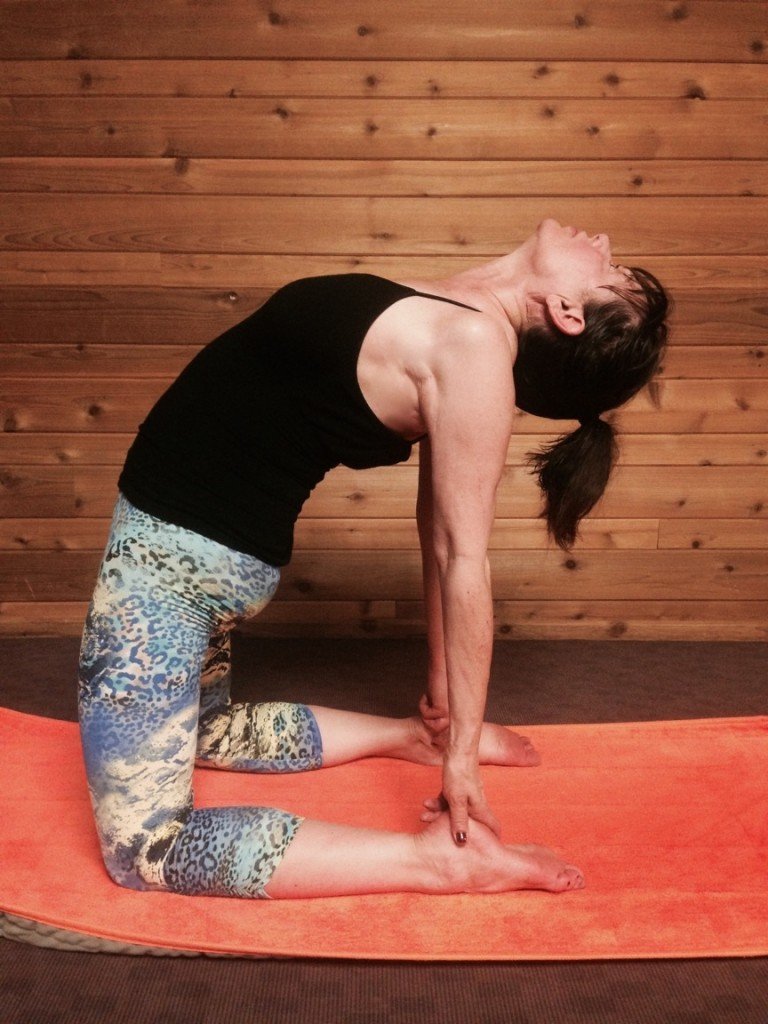 When I received my diagnosis of stage 2A breast cancer in 2008, I continued to jog until I started treatment. Once chemo began, I felt so weak and tight that I no longer had the stamina to work out in the gym, jog, or even walk. It didn’t help that I had lost my hair; wearing a wig was so hot, uncomfortable, and embarrassing to wear when exercising. Not only did I need a diversion, but also self-kindness and the nurturing, gentle, and uplifting environment that I’ve always found in yoga communities. I began practicing vinyasa yoga at age 21 and continued, on and off, for years. I returned to yoga in 2009 to increase circulation to metabolize the chemo out of my muscle tissues. I also needed the time to relax, reflect, and meditate on my circumstances. I wanted to nurture my body and get in touch with my inner self.
When I received my diagnosis of stage 2A breast cancer in 2008, I continued to jog until I started treatment. Once chemo began, I felt so weak and tight that I no longer had the stamina to work out in the gym, jog, or even walk. It didn’t help that I had lost my hair; wearing a wig was so hot, uncomfortable, and embarrassing to wear when exercising. Not only did I need a diversion, but also self-kindness and the nurturing, gentle, and uplifting environment that I’ve always found in yoga communities. I began practicing vinyasa yoga at age 21 and continued, on and off, for years. I returned to yoga in 2009 to increase circulation to metabolize the chemo out of my muscle tissues. I also needed the time to relax, reflect, and meditate on my circumstances. I wanted to nurture my body and get in touch with my inner self.
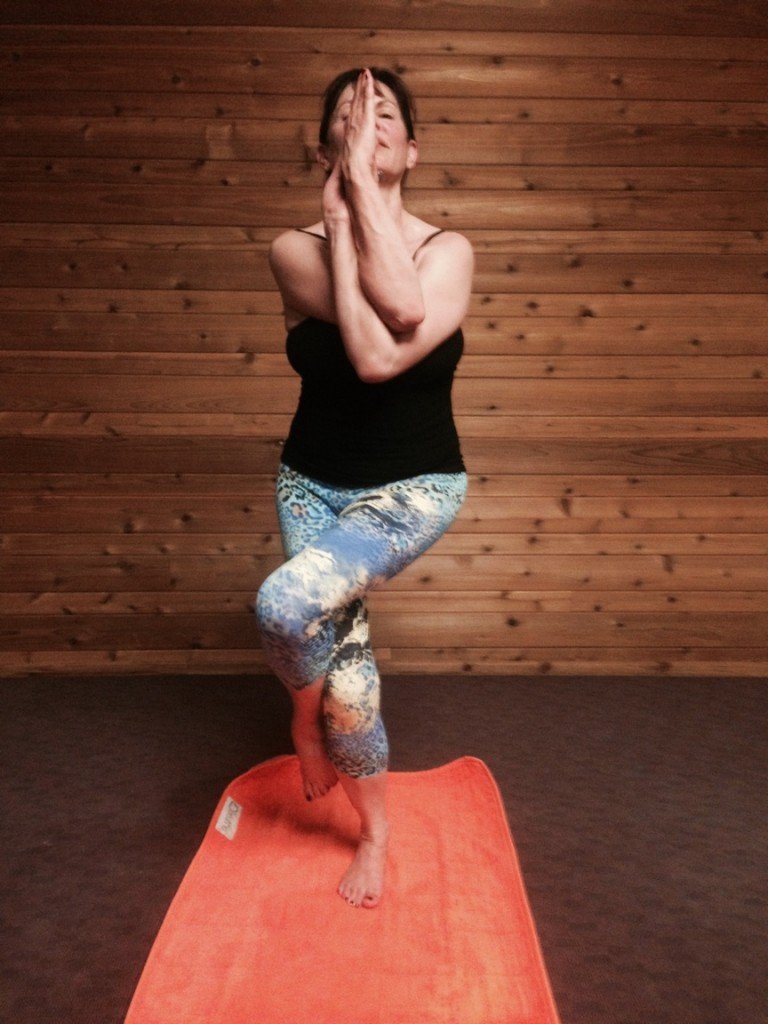 Yoga opened my world again to retreats, meditations, and chakra contemplation. Being a gentler form of exercise, yoga is well-tolerated in a chronically fatigued state. No pounding on the StairMaster or struggling with weights, having to listen to pop music blaring or TV’s all over the room. It provides a quieter environment that fosters contemplation and a peaceful state of mind. I eventually graduated to a more rigorous Bikram-style yoga practice. There is nothing like a good yoga class (any type) to elevate your consciousness, stretch your muscles, awaken your spine and clear your head.
Yoga opened my world again to retreats, meditations, and chakra contemplation. Being a gentler form of exercise, yoga is well-tolerated in a chronically fatigued state. No pounding on the StairMaster or struggling with weights, having to listen to pop music blaring or TV’s all over the room. It provides a quieter environment that fosters contemplation and a peaceful state of mind. I eventually graduated to a more rigorous Bikram-style yoga practice. There is nothing like a good yoga class (any type) to elevate your consciousness, stretch your muscles, awaken your spine and clear your head.
I continue to go to Bikram two to three times a week. I doubt I will ever choose another form of exercise. Hot yoga changed my life. I was in such a dark place when I was diagnosed, but thanks to yoga, I am now comfortable and content with myself. I felt more in control and believed in myself. I started singing! It gave me confidence and mentally changed me for the better. My studio became my home away from home. Yoga helped me through my health challenge so much that it is difficult to imagine my complete healing would have occurred without it.

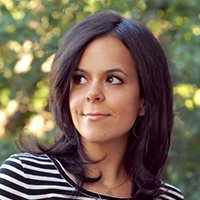
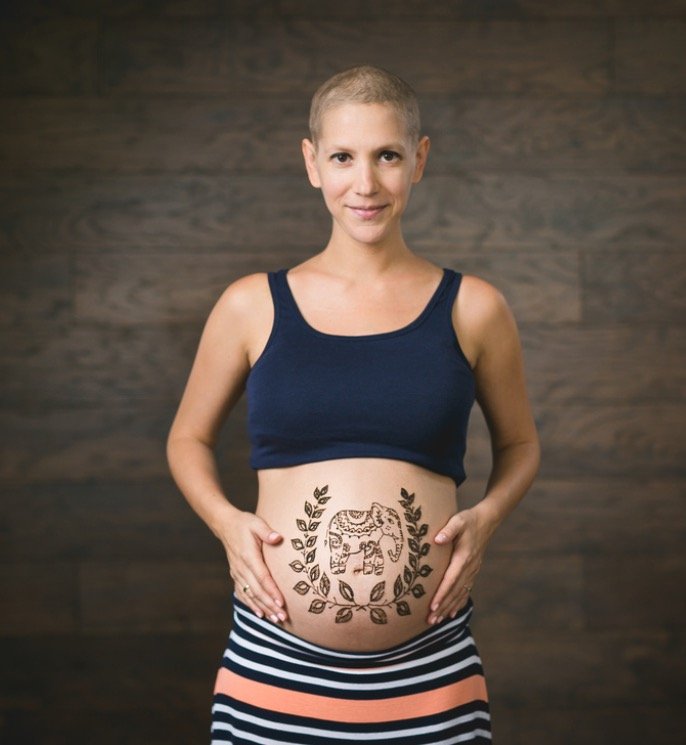
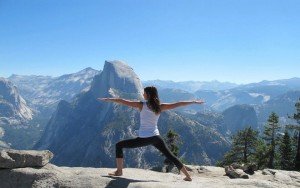
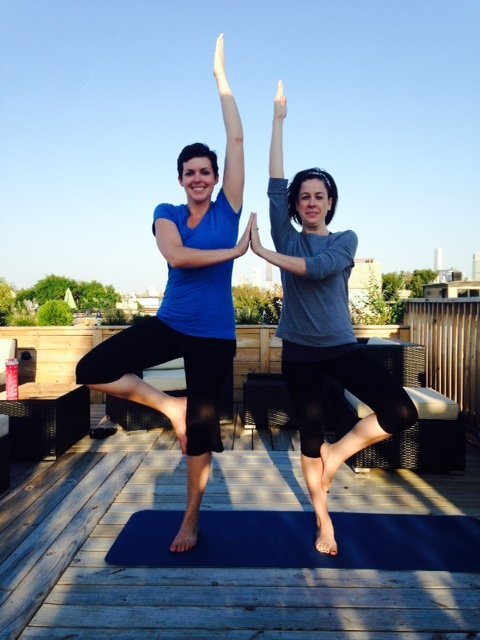
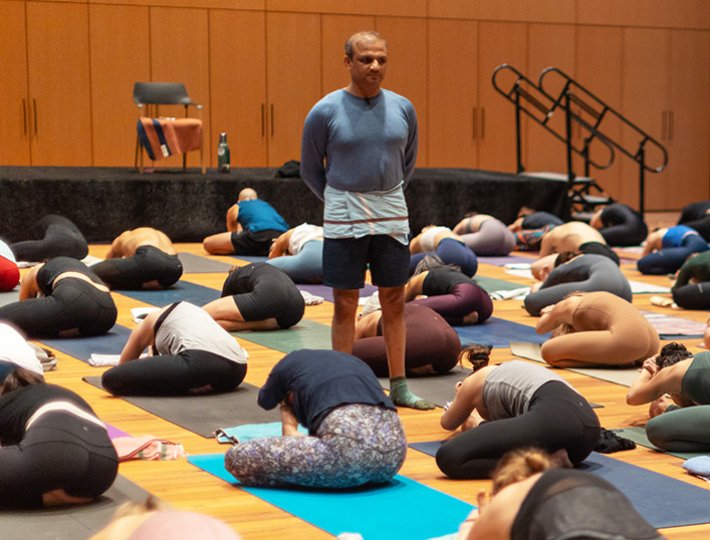





Comments (0)